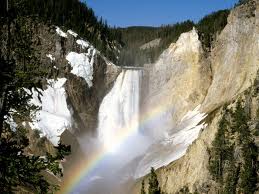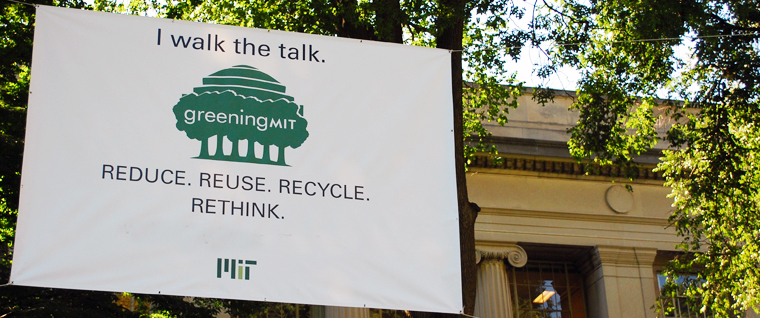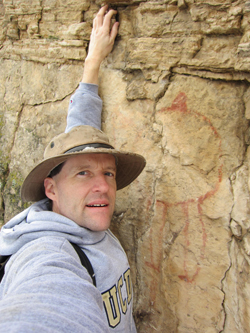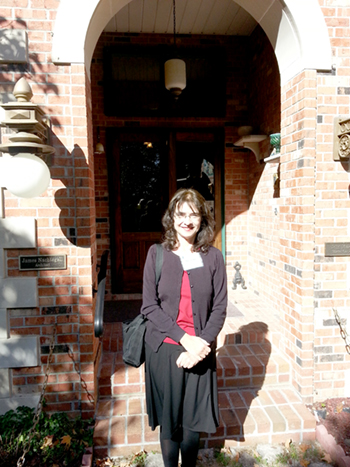 No Hunting or Fishing Allowed...Another offering by Scott Herring, UC-Davis
No Hunting or Fishing Allowed...Another offering by Scott Herring, UC-Davis
Last summer, returning from a trip to Greater Yellowstone, I was sitting in a cramped Alaska Airlines puddle jumper, thumbing through the in-flight magazine out of simple boredom. What I found was so memorable that I stole the magazine, and still have it. Here was direct evidence of subject I have been thinking about often for some years: how environmentalism has ceased to have anything to do with the environment, and everything to do with making its upmarket leftist supporters feel good about themselves.
What I saw were two full-page ads, printed in vivid color on glossy stock, and therefore mighty expensive. Just a few decades ago, the outright schizoid contrast between the two would have made the editor think twice about putting them in the same issue, but no one on the staff had seen the clash. The first was an ad for a contractor in Alaska: it showed the crew paving a road into what had been untouched forest, with vacation homes strung along the slope above. It was the kind of “land-rape” that would once have made an environmentalist’s blood boil. The next was an ad for Seattle University, with the headline “Washington State’s Greenest Campus.” The text: “Seattle University has emerged as the premier independent university of the Northwest in no small part due to its nationally recognized commitment to sustainability. Sustainability is built into quality academics programs [a little grammar problem there], student-led environmental restoration projects and celebrated work to reduce our carbon footprint. Come visit our pesticide-free campus, officially designated a Backyard Wildlife Sanctuary.”
 Since I first knew Yellowstone, environmentalism itself has changed. It has been both undermined and co-opted, at the same time. When I left to go live in Yellowstone two decades ago, one large branch of the movement was devoted to wilderness, to the outdoors as a place to escape the more idiotic demands of modern life. This was the branch that had taken people like John Muir as a hero. Today, Muir’s books are becoming samizdat in literature departments, because of their political incorrectness (among other problems, Muir disliked California Indians, and was so impolite as to say why: because the ones he met in Yosemite were half-naked vagrants). Environmentalism is instead now a sophisticated style of conspicuous consumption. It is all about driving the correct expensive car, using the correct expensive lightbulbs, drinking the correct expensive coffee, and going to the correct “sustainable” college. Environmentalism is no longer a way to escape consumerism; it is simply another way to consume, quite conspicuously. And as long as you are “concerned” about global warming, and signed an online petition about it a year or two ago, it is fine to own one of those houses for which the forest had to be destroyed, and to demand that wildland fire be suppressed to protect your investment. After all, you tell yourself, the trees sequester carbon.
Since I first knew Yellowstone, environmentalism itself has changed. It has been both undermined and co-opted, at the same time. When I left to go live in Yellowstone two decades ago, one large branch of the movement was devoted to wilderness, to the outdoors as a place to escape the more idiotic demands of modern life. This was the branch that had taken people like John Muir as a hero. Today, Muir’s books are becoming samizdat in literature departments, because of their political incorrectness (among other problems, Muir disliked California Indians, and was so impolite as to say why: because the ones he met in Yosemite were half-naked vagrants). Environmentalism is instead now a sophisticated style of conspicuous consumption. It is all about driving the correct expensive car, using the correct expensive lightbulbs, drinking the correct expensive coffee, and going to the correct “sustainable” college. Environmentalism is no longer a way to escape consumerism; it is simply another way to consume, quite conspicuously. And as long as you are “concerned” about global warming, and signed an online petition about it a year or two ago, it is fine to own one of those houses for which the forest had to be destroyed, and to demand that wildland fire be suppressed to protect your investment. After all, you tell yourself, the trees sequester carbon.
Environmentalism is today a leftist religion. It was not always so. It was born in the late nineteenth century among hunters and fishermen, who decided that it was time to start conserving habitat for the sake of the game and the fish. For those first conservationists, a virile ruggedness and self-reliance were not virtues; they were just part of life in the woods, and hardly worth noting. Today’s environmentalists make obedience to bureaucracy the highest good. It is hardly even surprising, when you think about it, that humanities departments exhibit such stultifying conformity. These departments are constructed by those for whom bureaucratic regulation is the highest good. Such a place has no room for people who like to hunt, or fish, or climb mountains just to see if they can.
 Scott Herring teaches writing and literature at the University of California, Davis. Before he got his Ph.D., he worked for years in Yellowstone National Park, and still carries on a hopeless love affair with the place. In the photograph, he’s hanging from a cliff therein.
Scott Herring teaches writing and literature at the University of California, Davis. Before he got his Ph.D., he worked for years in Yellowstone National Park, and still carries on a hopeless love affair with the place. In the photograph, he’s hanging from a cliff therein.





